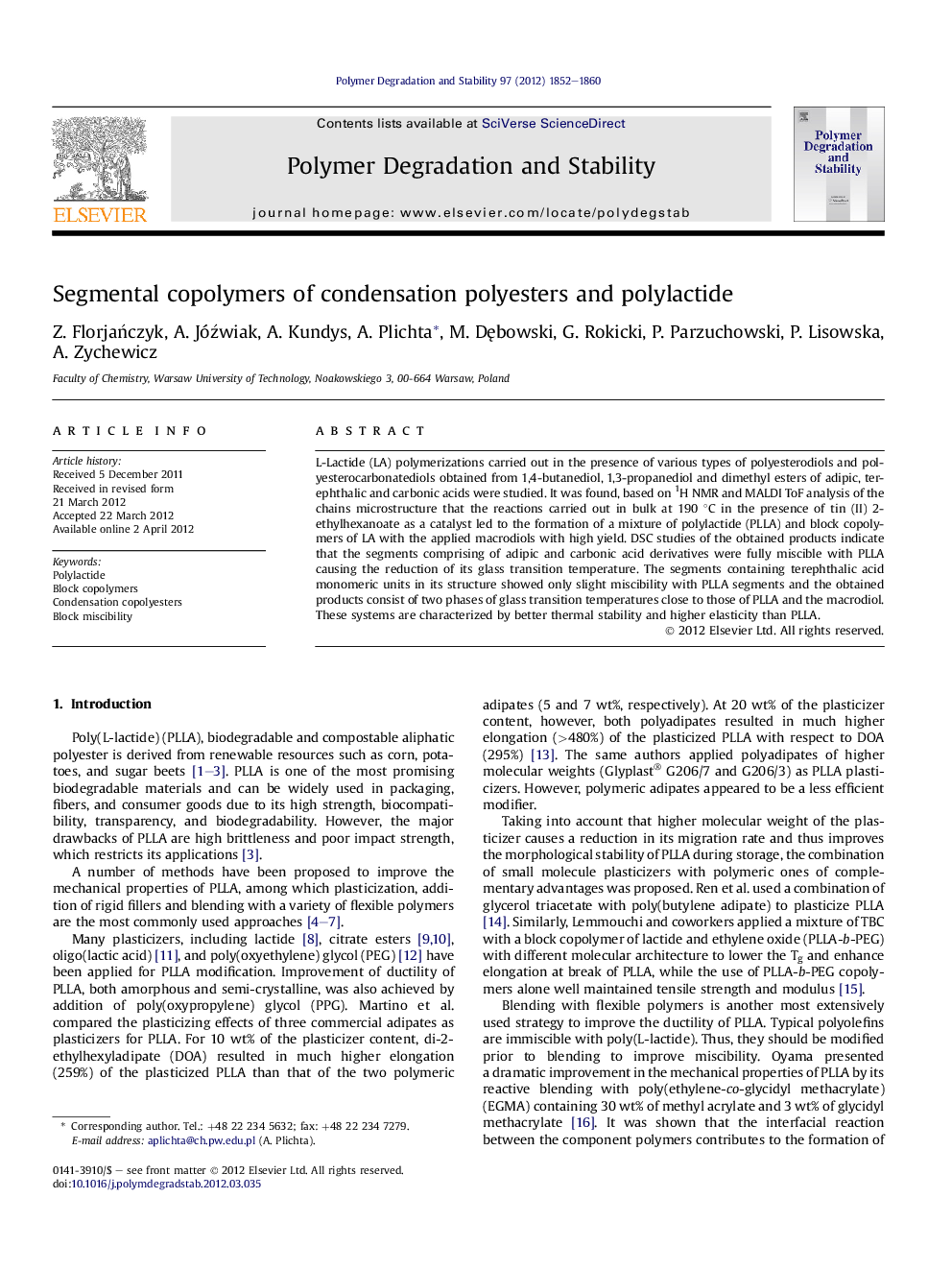| Article ID | Journal | Published Year | Pages | File Type |
|---|---|---|---|---|
| 5202305 | Polymer Degradation and Stability | 2012 | 9 Pages |
Abstract
L-Lactide (LA) polymerizations carried out in the presence of various types of polyesterodiols and polyesterocarbonatediols obtained from 1,4-butanediol, 1,3-propanediol and dimethyl esters of adipic, terephthalic and carbonic acids were studied. It was found, based on 1H NMR and MALDI ToF analysis of the chains microstructure that the reactions carried out in bulk at 190 °C in the presence of tin (II) 2-ethylhexanoate as a catalyst led to the formation of a mixture of polylactide (PLLA) and block copolymers of LA with the applied macrodiols with high yield. DSC studies of the obtained products indicate that the segments comprising of adipic and carbonic acid derivatives were fully miscible with PLLA causing the reduction of its glass transition temperature. The segments containing terephthalic acid monomeric units in its structure showed only slight miscibility with PLLA segments and the obtained products consist of two phases of glass transition temperatures close to those of PLLA and the macrodiol. These systems are characterized by better thermal stability and higher elasticity than PLLA.
Keywords
Related Topics
Physical Sciences and Engineering
Chemistry
Organic Chemistry
Authors
Z. FlorjaÅczyk, A. Jóźwiak, A. Kundys, A. Plichta, M. DÄbowski, G. Rokicki, P. Parzuchowski, P. Lisowska, A. Zychewicz,
